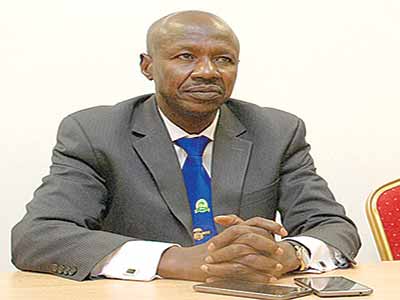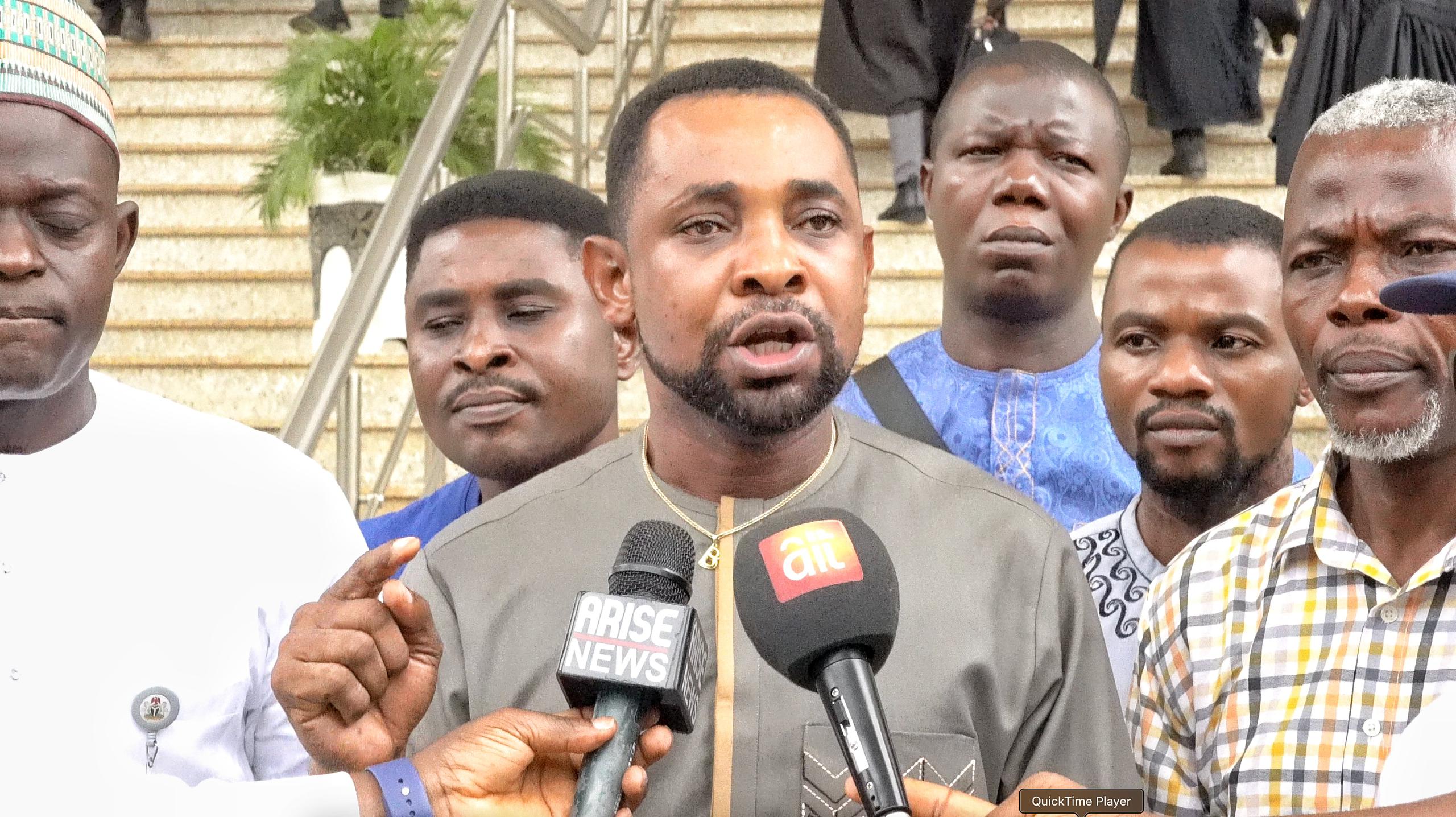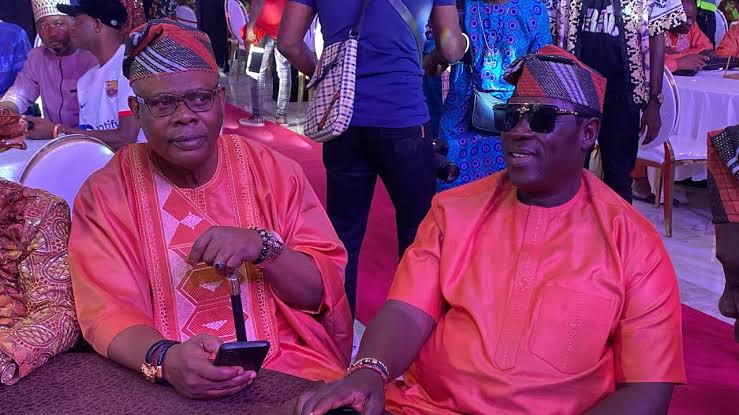How Ajobiewe settled long-standing feud between movie stars Yinka Quadri, Ogogo
The internet was stirred up when a video of two veteran Nollywood actors, Yinka Quadri and his colleague, Taiwo Hassan, popularly known as Ogogo, surfaced on social media platforms on Wednesday evening.
Although, PUNCH Online could not confirm when or how the disagreement started between the two actors, they were seen settling their differences in a now viral video.
In the video, one of Nigeria’s legendary Esa Oriki Orile exponents, Sulaiman Ajilara, popularly called Ajobiewe, was seen begging the veteran actors to put aside their differences and sheath their swords.
Ajobiewe made the peace call on Wednesday night during the birthday of actor Yomi Fabiyi.
When Quadri approached the dance floor, Ajobiewe insisted he call on his friend, Ogogo.
Afterwards, Ogogo joined Quadri while the chanter pleaded with them to settle their misunderstandings with his lyrics.
He sang in Yoruba, “Where is your Ogogo? Why did you come here alone? Call him for me. Tell him to come to me. I beg you, it is impossible not to have misunderstandings but I am begging you in the name of God, to settle whatever it is.
“Please hug each other and let it end there. I do not want to hear anything about your misunderstandings anymore for God’s sake.”
The two then hugged and smiled at each other.
Reacting to this, some Nigerians commended Ajobiewe for reuniting the actors, noting that it was good to see them back together.
Lanre Adeola, tweeting with the handle @lanreadeola said, “That’s lovely. An elder that doesn’t allow the baby’s neck to twist in the market.”
A tweep, Olanrewaju, who identifies as @olanrewaju wrote, “Agba o ni tan lori le…May God keep Ajobiewe for us for many years in good health. This is so nice.
Others expressed shock that the two were not on good terms. Sope, who tweets as @Dcsopetie wrote, “Wow! I never knew they were not talking to each other and how they hid it from the public is beyond me.
Meanwhile, Quadri, in a video shared by a YouTuber, Kilarigbo, earlier on Wednesday, confirmed their friendship, saying they are five and six.
He said though they are not biologically related, they are more like twins, adding that they have been friends since they met in 1985.
He, however, hinted that they have their issues, noting that they settle their misunderstandings without a third party.
He also warned the public to desist from spreading rumours of their fight, noting that they can never be separated by any force whatsoever.
However, PUNCH Online observed that both friends were hardly seen together in public in recent times.
Efforts to speak to Ogogo proved abortive as he didn’t pick calls or respond to text messages sent to his phone as of the time of filing this report.
Reacting, PUNCH’s style Editor, Tofarati Ige, said though the cause of their rift was unknown to the public, they started appearing less in public together.
He said, “Originally, Ogogo and Yinka Quadri were known to be close friends, as they often appeared at events together. In many films, they acted as friends, and their relationship continued off-screen. In some instances, they even wore outfits similar to those for public events.
“However, for some time, they started appearing less at public events together. Even when Ogogo’s daughter, Shakirat, got married, Yinka Quadri did not attend.
“Though the cause of their rift was not made known to the public, there were different rumours that they had fallen out, but neither of them acknowledged it publicly.
“However, the rift was well managed, as it was only known to insiders and privileged sources in the industry.”
Speaking further, he noted that when Quadri was approached about the issue, he declined to comment on it.
“Personally, when I heard of the rift about two years ago, I asked Yinka Quadri a question about it at an event, but he refused to comment on the issue.
“Till date, there are just speculations as to what actually caused the rift, I am not privy to what actually happened. As regards reconciliation, I am not aware of any elder that had tried to mediate between them.
“But, they are both close to elders in the industry, such as Jide Kosoko and Oga Bello, who are likely to have attempted to broker peace between them,” he added.
@PUNCHNG





 celebrity radar - gossips5 months ago
celebrity radar - gossips5 months ago
 celebrity radar - gossips5 months ago
celebrity radar - gossips5 months ago
 Business3 months ago
Business3 months ago
 Business4 months ago
Business4 months ago









You must be logged in to post a comment Login